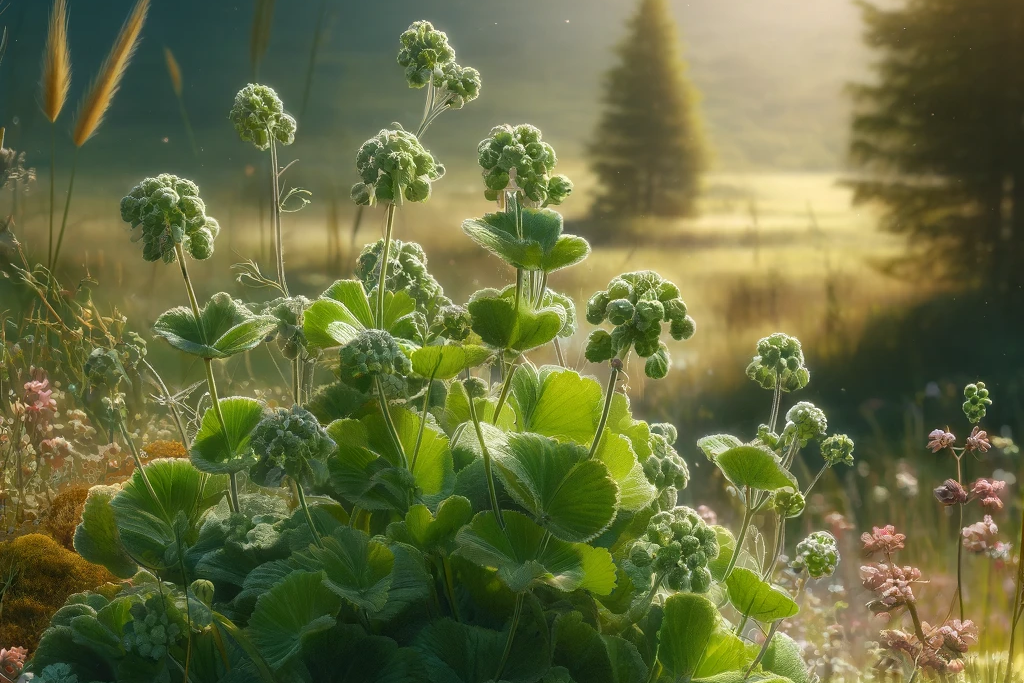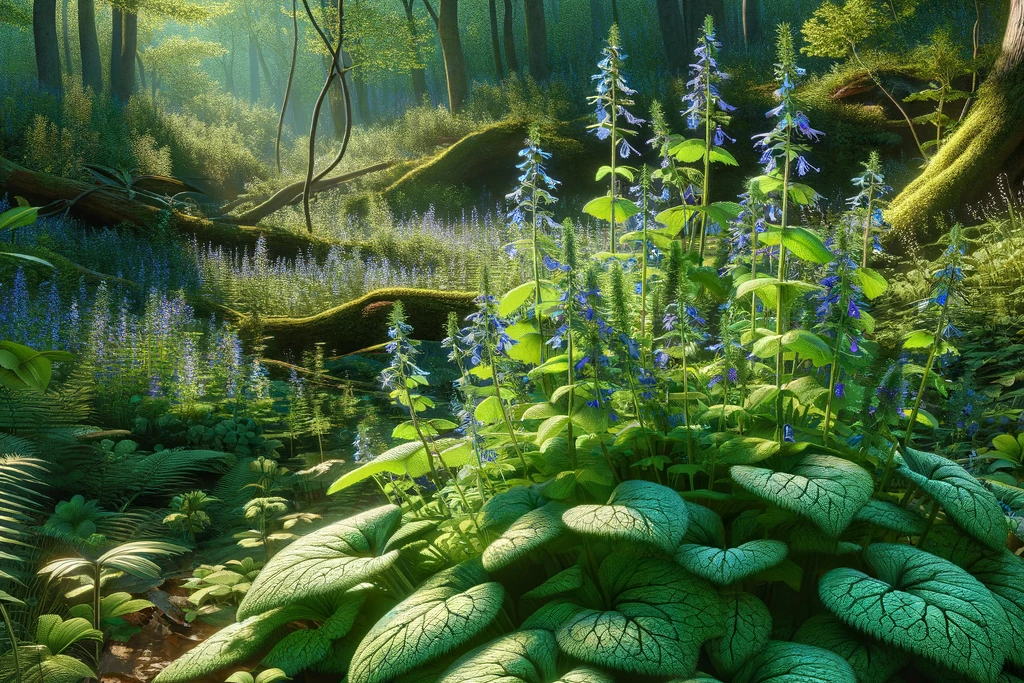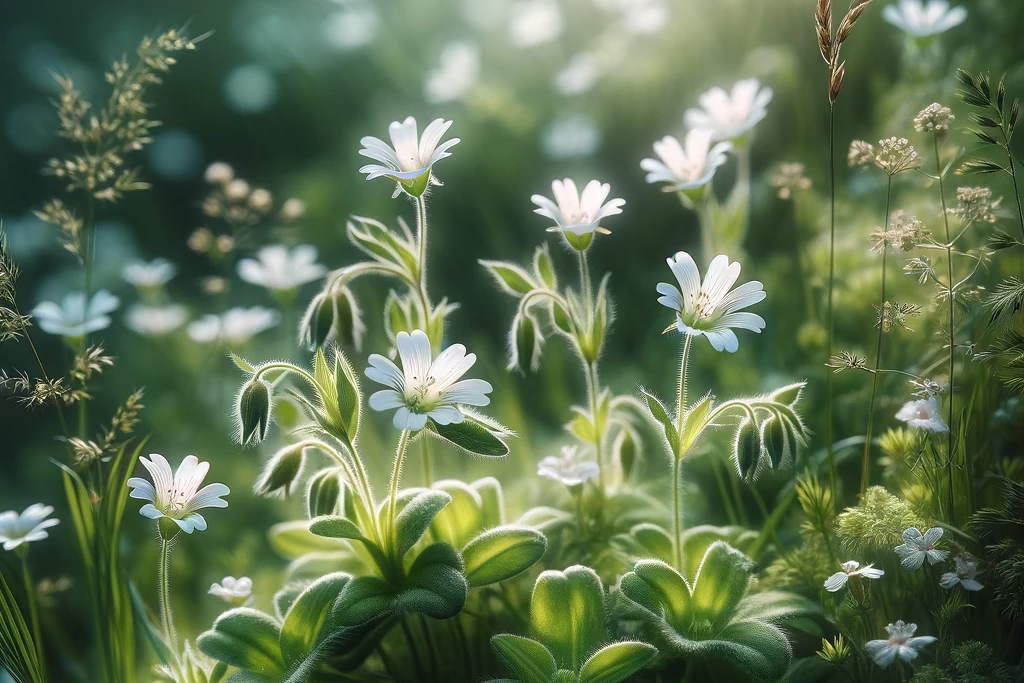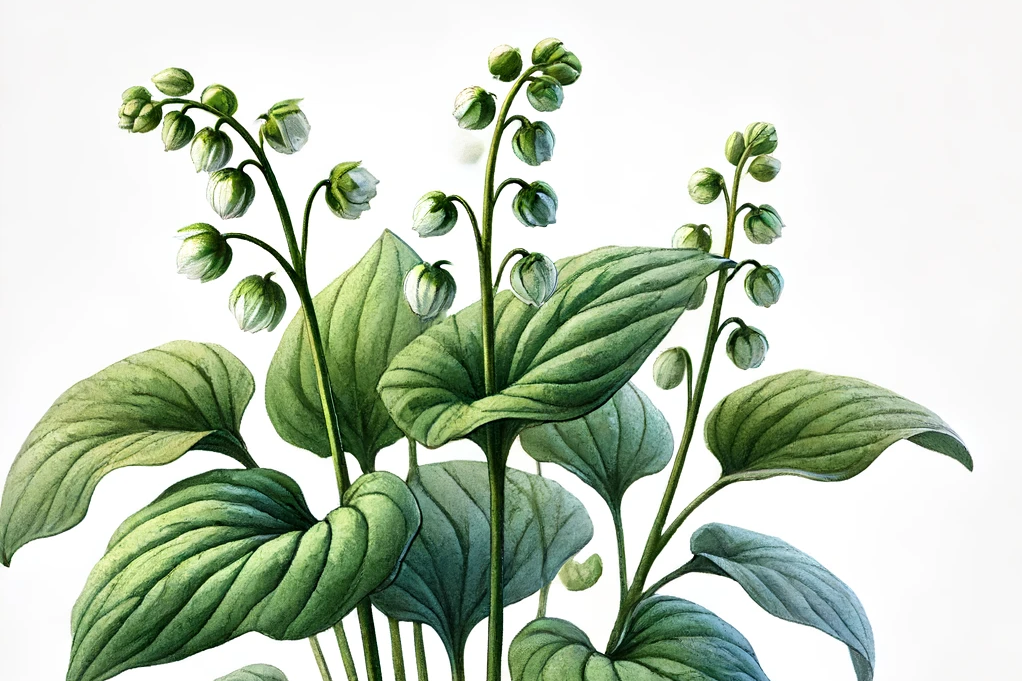Blackthorn

The common groundsel, botanically known as Ajuga, is a plant species that can be found in many gardens and meadows in Europe and is characterized by its dense inflorescences and rapid growth. While its deep blue, purple or sometimes white flowers make it a feast for the eyes for humans, the question arises as to its compatibility and effect on our faithful four-legged companions. This article provides a comprehensive insight into the world of common honeysuckle and examines what makes it special, what benefits it can have for dogs and what risks it poses. A detailed guide for any dog owner with their pet's welfare in mind.
What is common groundsel?
Ajuga belongs to the Lamiaceae family and includes several species, the best known of which is creeping Ajuga (Ajuga reptans). This perennial plant is characterized by its ability to quickly form dense carpets, making it a popular ground cover choice in gardens. Its leaves are typically dark green, sometimes with purple spots or a bronze tint. The flowering period extends from April to June, during which the plant attracts bees and other pollinators with its characteristic flower stalks.
Benefits of the common guelder rose for dogs
Natural remedies
Some species of common groundsel are valued in traditional medicine for their anti-inflammatory and astringent properties. In controlled amounts, the plant can help treat minor skin irritations and wounds in dogs by reducing swelling and promoting healing.
Food source
In the wild, common groundsel can serve as an occasional food source for dogs, especially when they are eating grass, to support their gastrointestinal health. The plant is rich in nutrients and can contribute to the diet in small amounts.
Disadvantages and precautions
Toxicity
Although common groundsel has many beneficial properties, certain species contain substances that can be toxic to dogs in large quantities. Symptoms of toxicity can include vomiting, diarrhea and lethargy. It is therefore important to make sure that your dog does not eat too much groundsel.
Allergic reactions
As with any plant, there is a risk of allergic reactions to common groundsel. If your dog shows signs of discomfort or skin irritation after coming into contact with the plant, you should consult a vet.
Whilst the burnet is an asset to any garden with its pretty flowers and hardy nature, it is important to keep in mind the potential risks to dogs. The potential health benefits it can offer must be carefully weighed against the dangers of toxicity or allergic reactions. Responsible supervision and limiting your dog's exposure to this plant is crucial to ensure their well-being. With the right knowledge and precautions, the common groundsel can be a safe and perhaps even beneficial part of your garden, enjoyed by all inhabitants, on two legs or four.
If you notice any signs of hypersensitivity or poisoning in your dog, you should see your vet immediately. We are not a substitute for a vet, but we try to be as accurate as possible. Every dog reacts differently and we recommend you get a second opinion or consult your vet if in doubt.
Stay healthy and take good care of your four-legged friend!😊
Similar to Blackthorn
Lippia belongs to the Verbenaceae family and includes a variety of species that can differ in appearance, growth and use. Some species are known for their fragrant leaves and flowers, which are...
Creeping groundsel belongs to the labiate family and is characterized by its creeping growth habit, its dark green, shiny leaves and its intense blue, sometimes purple flowers. This plant is native...
Cerastium belongs to the Caryophyllaceae family and comprises a large number of species that thrive in a wide variety of habitats. Hornworts are characterized by their small, white flowers, which...
Shade flowers, scientifically known as Maianthemum, are a genus of flowering plants belonging to the asparagus family (Asparagaceae). They are also known as "false lily of the valley" and are mainly...



